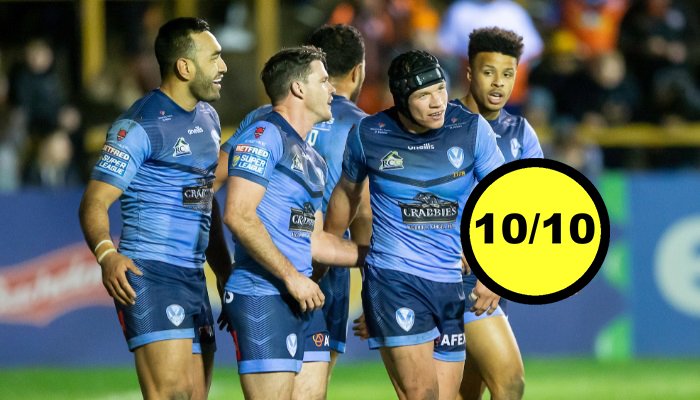
Yet another season has drawn to a close. It’s a somewhat overused saying but time really does fly. In this article I’m going to analyse how every Super League team’s season panned out and rate their campaign based on pre-season prediction and overall performance.
Castleford Tigers (5th)
It was a difficult season for the Tigers with injuries making it almost impossible for them to build any momentum. Losing Luke Gale for the entire campaign before a ball was even kicked was a hammer blow and the likes of Michael Shenton, Oliver Holmes, Junior Moors and Alex Foster were also sidelined for long periods. Having said that, Daryl Powell’s side made a very promising start, winning their opening four games and would have been disappointed they ended up a whopping 22 points behind League Leader Shield winners St Helens. Their right edge defence was a major weakness during the early rounds of the season but was rectified by the return of England international Mike McMeeken.
Following a mid-season slump the Tigers rallied, winning five of their last eight games to scrape into the top five, pulling off a shock win at Warrington Wolves in the playoffs. They weren’t good enough to get any further though, with eventual Grand Finalists Salford ending their season. Young half Jake Trueman did a good job on the whole, taking over the organising role in the team from Gale. However, it was a lot of pressure on his shoulders and Cas lacked the sufficient creativity in attack to make it to Old Trafford. Liam Watts was outstanding throughout the campaign and Jordan Rankin and Mike McMeeken also had very strong seasons. Due to the multiple halfback pairings, Castleford weren’t at their fluent best in 2019. The Tigers could match teams physically but didn’t have the creative spark to win the big games, especially away from home. This was emphasised most in the 22-0 semi-final defeat to Salford. They were arguably more aggressive and physical in defence than in previous years under Powell, but certainly not as expansive or fluent with ball in hand.
Best player: Liam Watts
Best performance: Warrington 12-14 Castleford
Season rating: 7/10
Catalans Dragons (7th)
The 2018 Challenge Cup winners were ridiculously inconsistent throughout 2019, to the point where you had to question their temperament, focus and mentality. The Dragons were a top five team on paper and pulled off impressive wins over St Helens, Warrington and Wigan, but they were completely overshadowed by pretty gutless performances in a few heavy defeats, as well as losing at home to bottom club London Broncos twice. Catalans conceded over 40+ points seven times during 2019 and the French outfit had a real tendency to capitulate once the game started to get away from them. There is definitely an attitude problem among Steve McNamara’s players with many of them unwilling to consistently work hard for their teammates.
Defensively Catalans were incredibly vulnerable but occasionally became very hard to beat, particularly at home. In attack they were inept more or less all season. The signing of Matty Smith didn’t work out and the mercurial Tony Gigot never reached the level he set during 2018. Sam Tomkins, who is still a top-quality player on his day and was instrumental in Catalans’ rare good performances, was the only real attacking spark. Only the bottom two (London and Hull KR) scored less points than the Dragons. Catalans were third during early June and were in the top five for large parts of the season but an end-of-season collapse saw them end up finishing closer to 10th than 5th. Not good enough for a squad boasting genuine quality in several positions.
Best player: Kenny Edwards
Best performance: Catalans 18-10 St Helens
Season rating: 5/10
Huddersfield Giants (10th)
The Giants somehow managed to have an injury list in double figures in the early stage of the season and this set the tone for a frustrating and disappointing season. Annoyingly for their fans, the Giants did actually pull off two or three really promising results. The 55-2 demolition job of Hull FC at Magic Weekend was the obvious highlight of the season and the “cowbell army” also won away at eventual semi-finalists Salford and Wigan.
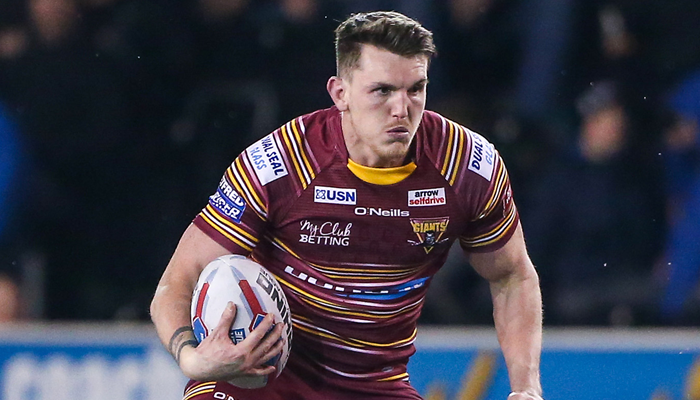
Lee Gaskell was one of Huddersfield’s standout performers this season.
In truth, Huddersfield were poor more often than not in 2019. They seemed to have a tendency to struggle during the 20 minutes and conceded an average of 29 points per game. They never found any consistency and ended up getting dragged into the relegation battle, needing a home win over Catalans on the final day to secure their Super League status. Emphasized by the fact only London conceded more points than them, Huddersfield looked quite an easy team to play against throughout 2019. That abysmal 0-44 home defeat to Leeds was the lowest point of their season. Injuries clearly didn’t help but the Giants’ performances just weren’t good enough for a team that were harvesting genuine ambitions of a top five finish after a promising second half of 2018. Although very raw at times, skilful fullback Darnell McIntosh was a shining light and the club’s player of the year Lee Gaskell played a huge role in crucial away wins over both Hull clubs during the relegation dogfight.
Best player: Lee Gaskell
Best performance: Hull FC 2-55 Huddersfield Giants
Season rating: 4/10
Hull FC (6th)
Despite not being as bad, Hull FC’s season had a very similar theme to Catalans as they were inconsistent and vulnerable to heavy defeats. The Black and Whites actually looked very promising at certain points of the season, thrashing local rivals Hull KR 56-12 and winning away at Wigan, Warrington and Castleford. But Hull were defensively weak throughout 2019 and were on the receiving end of some pitiful scorelines. They conceded 63 to Warrington, 62 to St Helens, 55 to Huddersfield and 44 to Castleford and Salford. Hull had an aging pack and the reduced interchanges might have hit them harder than most other clubs. Physically they got dominated too often and it’s no surprise Lee Radford, who generally deploys a physical and aggressive style of play, has looked to recruit big strong forwards for 2020.
Hull scored some of the best tries of the season. Jake Connor, Albert Kelly and Ratu Naulago was a ridiculously dangerous right edge and to their credit the team pushed Warrington all the way in the Challenge Cup semi-final and improved on 2018. They had the power, skill and speed to beat anyone on their day but were just simply too inconsistent to make the top five. It was clear throughout 2019 they had enough quality and strike in the backs but just weren’t strong enough up front and suffered some humiliating results because of this.
Best player: Josh Griffin
Best performance: Hull FC 56-12 Hull KR
Season rating: 6/10
Hull KR (11th)
Things looked promising during the off-season but Hull KR endured another tough season. High profile recruitment included Josh Drinkwater, Mitch Garbutt and Kane Linnett, but the Robins simply didn’t have enough quality across the park and were outclassed, overpowered and out-thought more often than not. Losing arguably their best player and most dangerous attacking strike weapon Adam Quinlan for most of the season certainly didn’t help and the halfback partnership of Danny McGuire and Josh Drinkwater never really clicked, despite the former having a fairly impressive final season in the game. Despite their lack of quality and strike, Hull KR battled their way to tight plucky victories away at Wakefield, at home to Hull FC (twice) as well as at home to Warrington and Castleford, which ultimately saved them from the dreaded drop. They looked in severe danger of going down under former World Cup-winning coach Tim Sheens, who was sacked after winning only 5 in 16. Their form improved moderately under Tony Smith, winning 5 in 13 as they had to rely on Wakefield beating London to avoid the drop.
Their two dramatic derby wins and the fact they survived meant 2019 wasn’t a complete disaster for the Robins. In terms of individuals, Kane Linnett was the clear pick of the bunch for in 2019, a hard-hitting and powerful-running centre that gave them genuine presence and quality on the edges; George Lawler was consistently strong, durable and aggressive wherever he played in the pack and the departing legend Danny McGuire won them a couple of games with his guile, vision and craft.
Best player: Kane Linnett
Best performance: Hull KR 18-10 Hull FC
Season rating: 4/10
Leeds Rhinos (8th)
The Rhinos had a torrid start to the season, winning just two of their opening ten games. This included defeats to the eventual bottom two (Hull KR and London) and although it was always a little bit unthinkable, they seemed in genuine danger of going down. During the short-lived David Furner era, Leeds had no steel or resistance whatsoever in defence, a weak mentality and a lack of attacking fluidity. There were problems everywhere. Kallum Watkins returned to the game after an ACL rupture and was a shadow of the breath-taking player he once was. The Richie Myler and Tui Lolohea partnership didn’t last long and realistically was never going to, two supporting halfbacks never works and the team lacked direction and leadership. The pack collectively lacked aggression and endeavour, conceding tries to barge overs close to the line far too regularly. The humiliating Challenge Cup defeat to Championship local rivals Bradford Bulls was the lowest point of the season and by that point they were something of a laughing stock in truth.
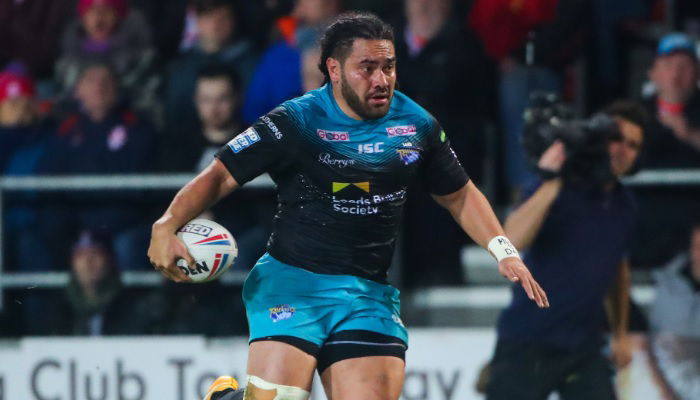
Konrad Hurrell was devastating with ball in hand throughout 2019.
In fairness to Leeds they improved considerably under Richard Agar during the second half of the season, winning 8 of their last 15 games and the astute signings of Robert Lui and Rhyse Martin both played a big role in the moderate revitalisation. Home wins over Catalans and Warrington ensured they stayed in the division. Konrad Hurrell, the obvious shining light in Leeds’ poor season ended the year with 14 tries and 7 assists, his lack of agility was sometimes exposed in defence but he was the Rhinos best ball-runner by some distance. His winger, Ash Handley, scored an impressive 22 tries and was one of the most improved players in the competition. Nevertheless this was an unacceptable season for Leeds and although expectations may not have been what they once were, they still underachieved overall.
Best player: Konrad Hurrell
Best performance: Salford 14-44 Leeds
Season rating: 4/10
London Broncos (12th)
Tipped by most pundits, journalists and supporters to struggle to win a game never mind put up a genuine fight for survival, London Broncos were one of the most likeable teams throughout 2019 and didn’t deserve to go down. A hard-working team with good fitness levels, London managed to win almost every close game they were involved in which demonstrated their character, endeavour and tough mentality. The Broncos began their season against Wakefield and were expected by many to get thumped by a relatively highly-rated side. London had other ideas, winning comprehensively 42-24 in one of the shocks of the season. In truth, Danny Ward’s side did suffer a few thrashings during the season as the physicality and power of some Super League teams proved too much. Nevertheless, they still won 10 more games than anyone expected them to with a team that included no superstars and many players who have spent the majority of their career in the Championship.
London quickly became well known as a well-drilled team with an expansive and entertaining style of play, they played well as a team and worked exceptionally hard for each other in both attack and defence. London won five games by a single score in 2019, a fit and fearless team that didn’t know when they were beaten. It was a real shame they just didn’t quite have the power and skill to stay in the competition, going down on points difference. They can be very proud of their efforts throughout 2019 and it’s good to see the likes of Jordan Abdull, Alex Walker, Jay Pitts, Luke Yates and Rhys Williams receive Super League contracts who all had strong personal seasons.
Best player: Jordan Abdull
Best performance: London 42-24 Wakefield
Season rating: 6/10
St Helens (1st)
Consistently outstanding and relentless from the word go; Saints are a well-balanced, well-structured and efficient team. Saints went the full season unbeaten at home and finished on top of the table a whopping sixteen points clear of nearest challengers Wigan. The ball-carrying forwards Alex Walmsley, Luke Thompson, Matty Lees and Morgan Knowles gave them merciless dominant go-forward and the swift, clinical passing accuracy and ball movement of top-quality pivots James Roby, Jonny Lomax and Lachlan Coote was just too much for Super League defences. Tommy Makinson, Kevin Naiqama, Mark Percival and Regan Grace is a devastating three-quarter line packed with pace, power, agility and finishing ability.
It was very impressive that as a team they had the fitness and skill to turn in outstanding performances on a weekly basis throughout the entire league campaign. A team packed with superstars across the park, they were too fast, too strong and too skilful for the rest of the competition. Justin Holbrook is a wonderful coach and transformed St Helens from being a team almost impossible to watch at the start of 2017, to a team almost impossible to beat. One of the best teams of the Super League era, they ultimately deserved the big prize at the end.
Best player: Jonny Lomax
Best performance: St Helens 38-12 Warrington Wolves
Season rating: 10/10
Salford Red Devils (3rd)
Tipped by virtually everyone for a relegation battle, Salford Red Devils defied all odds in 2019 finishing third in the table and went on to make their first ever Grand Final. It was a tremendous achievement from players, coaching staff and a wonderful experience for their supporters. Ian Watson got the absolute best out of every man at his disposal; almost every player in the squad had their career-best season. Salford clicked together in attack and worked their socks off for each other in defence. They appeared to get fitter as the season went on! In terms of their season as a whole, Salford’s attack was well-drilled, fluent and produced tries from all over the pitch, led by the best player in the competition, Jackson Hastings. They scored some terrific tries from both individual quality and team cohesion. However, their defence and game-management improved significantly as the season progressed which were both key to their eight-match winning run during the climax of the season. They looked like an explosive and dangerous team during their 45-0 demolition of Catalans and when they came agonisingly close to being the only team in the country to go to St Helens and pick up the two points.
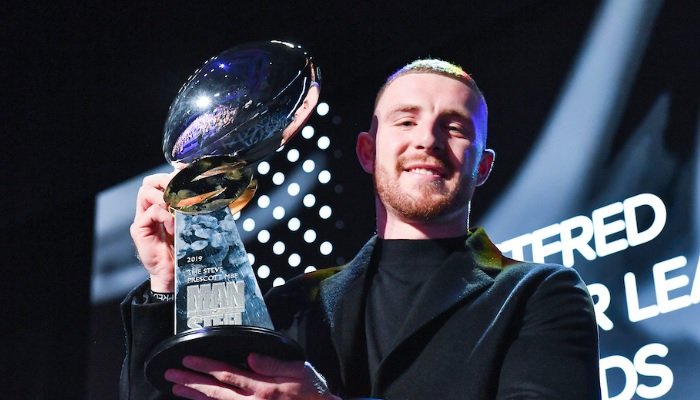
Jackson Hastings won the 2019 Man of Steel award.
Quite a few narrow defeats threatened to dent Salford’s top five charge but they grew smarter as the season progressed. In the big games during the playoffs Ian Watson’s side continued to impress, they played with no fear and plenty of intelligence. Their semi-final 4-28 win over Wigan was an unbelievable performance, they dominated the forwards battle, attacked with better structure and organisation and handled the occasion better than their more experienced opponents. It was a shame the Grand Final was ultimately one bridge too far, but nevertheless Salford had an unbelievable season and exceeded expectations more than any Super League team has ever done.
Best player: Jackson Hastings
Best performance: Wigan 4-28 Salford
Season rating: 9/10
Wakefield Trinity (9th)
Following a calamitous round one 42-24 defeat to newly-promoted London Broncos, Wakefield recovered quickly and found some real form and momentum, pulling off convincing away scalps at Headingley and the KCOM Stadium. They went on a run of 8 wins in 12 games to go third where they stayed in the table during a brief spell between late April and early May. Talismanic Prop Forward David Fifita produced a number of outstanding individual displays. However, an injury crisis that included several long-term key absentees such as Tom Johnstone, Bill Tupou, Tyler Randell, Tinirau Arona, Matty Ashurst, James Batchelor and both halfbacks (Danny Brough and Jacob Miller) took its toll on the team with devastating effect. The club went on a run of just 3 wins in 13 games during a miserable downward spiral. Injuries would not have been an acceptable excuse had Wakefield been relegated, but in terms of making the top five they simply didn’t have the squad depth to adequately replace some of their best players.
During the majority of the second half of the season Wakefield were rarely competitive in games for the full 80 minutes and as a team looked utterly devoid of confidence, aggression, quality and structure in attack. They looked all too easy to play against in both attack and defence and having been in the top five for almost the entire first half of the season, Wakefield ended up in a desperate scrap for survival and relied on a 19-10 victory over London to ensure survival, having improved during the last few weeks of the season. Halfbacks Danny Brough and Jacob Miller never quite regained their early season form and the forward pack were too reliant on the power and strength of David Fifita. In terms of a shining light, powerful and durable back-row forward Kelepi Tanginoa was among Wakefield’s best players having joined the club in May.
Best player: David Fifita
Best performance: Hull FC 12-32 Wakefield
Season rating: 4/10
Warrington Wolves (4th)
The Wire went into 2019 looking fairly strong across the park. Blake Austin began the season in outstanding form and was getting better every week, Mike Cooper was the pick of forwards and getting through a mountain of work and the outstanding Daryl Clark was turning in consistently brilliant dummy half displays. They looked very good to begin with and posted some big scorelines including a 63-12 win over Hull FC, 54-6 over Hull Kingston Rovers and 50-19 over the Huddersfield Giants. Warrington spent the first half of the season hot on the heels of St Helens in a two-horse race for the League Leaders Shield. They looked a well-balanced team with quality, size and speed across the park.

Daryl Clark was the best hooker in Super League this season.
Despite recording a shock Challenge Cup Final triumph over rivals St Helens at Wembley, Warrington completely ran out of steam in the league winning just three of their last eleven games, before slumping to a 12-14 home defeat in the first hurdle of the playoffs to Castleford Tigers. In a season that promised so much to begin with, the dreary, passive way it ended was a real disappointment to their supporters and finishing fourth in a two-horse race was an anti-climax to say the least. Losing Blake Austin at the start of August was a killer, he was at the heart of Warrington’s demolition jobs earlier on in the season and there was a lack of attacking flair and creativity without him. Overall a Challenge Cup success and top-four finish meant 2019 was still a good season for Warrington.
Best player: Daryl Clark
Best performance: Hull FC 12-63 Warrington
Season rating: 7.5/10
Wigan Warriors (2nd)
The defending champions, Wigan, suffered a terrible start to the season, winning just three of their first eleven games and on top of that were hindered by the Shaun Edwards saga. The Warriors appeared to lose their typical physical aggression and mental steel that were both essential factors of their ruthless and dogged displays in 2018. Defeats to fellow strugglers Huddersfield and London were uncharacteristic and somewhat concerning, as Wigan were well renowned for their consistency against the ‘lesser’ teams throughout the Shaun Wane era.
However to their credit the Warriors turned it around during the summer months, going on a formidable run of 12 wins in 13 games which steered the club from the bottom half of the table to second. Adrian Lam’s side were 12 points behind Warrington in early June and ended up finishing above them with a hard-thought wins over Hull Kingston Rovers and Leeds kick-starting their outstanding run of form. The aggressive line speed, persistent tenacity and dominance in the energy battle appeared to have returned and in attack the likes of George Williams, Zak Hardaker and Oliver Gildart were simply getting better every week, with mid-season recruit Bevan French adding a new dimension to their attack. Going into the playoffs they were most people’s picks to win the Grand Final which was understandable due to their reputation of peaking during the business end of the season. But back-to-back heavy defeats to eventual Grand-Finalists St Helens and Salford ended their season. In truth Wigan went from relegation candidates to getting to within 80 minutes of Old Trafford so 2019 was far from a disaster, but it was a season without a trophy which is always a disappointment to the club with the most resources in European rugby league.
Best player: Zak Hardaker
Best performance: Wigan 52-10 Hull KR
Season rating: 7/10
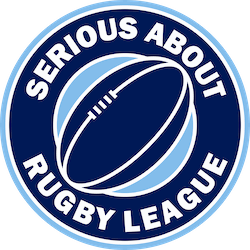










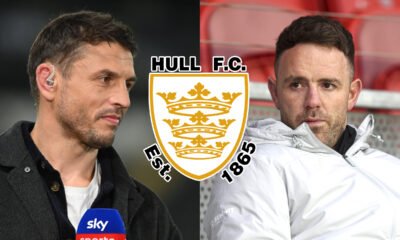

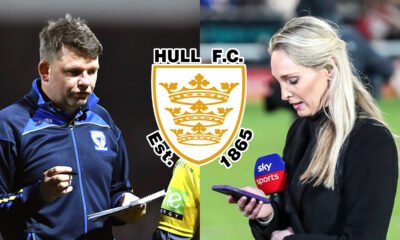



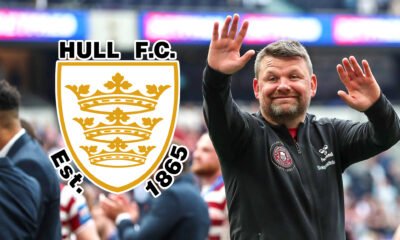

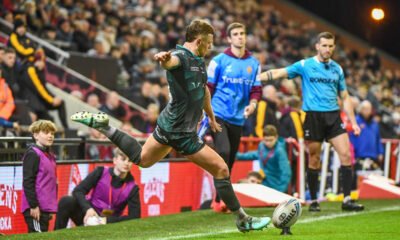



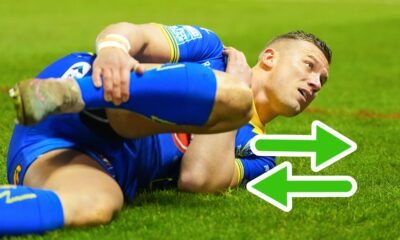

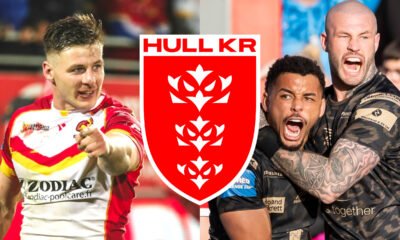

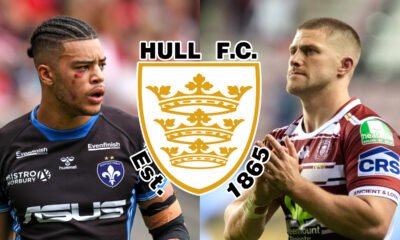

Ben Carney
October 15, 2019 at 10:12 pm
London 7/10, Wigan 5/10 are the ones I would change but spot on apart from that.
Jaybs
October 16, 2019 at 9:12 am
London is quite right in 7/10, after what everyone predicted, how many teams beats The Champions twice? the
comments from Kyle Amor after The Grand Fina; about Londonl were a disgrace, and even worse he got his facts wrong! and he even seemed to forget who beat them twice, wish some professional players would think first! or just enjoy the night they had!